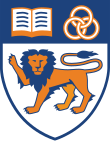
Back جامعة سنغافورة الوطنية Arabic جامعة سينجابوره الوطنيه ARZ নেচনেল ইউনিভাৰচিটি অৱ ছিংগাপুৰ Assamese Universidá Nacional de Singapur AST Sinqapur Milli Universiteti Azerbaijani ملی سنقاپور بیلیمیوردو AZB Univérsitas Nasional Singapura BAN Pambanwang Unibersidad kan Singapore BCL Сінгапурскі нацыянальны ўніверсітэт Byelorussian সিঙ্গাপুর জাতীয় বিশ্ববিদ্যালয় Bengali/Bangla
 | |
Former names | Straits Settlements and Federated Malay States Government Medical School (1905–1921) King Edward VII College of Medicine (1921–1949) University of Malaya, Singapore campus (1949–1962) University of Singapore (1962–1980) Nanyang University (1956–1980) |
|---|---|
| Type | Public research university |
| Established | 3 July 1905 (as King Edward VII College of Medicine) 8 August 1980 (as National University of Singapore) |
Academic affiliations | ACU, IARU, APRU, Universitas 21, GEM4, AUN, ASAIHL, APSIA, McDonnell International Scholars Academy,[1] UAiTED |
| Endowment | S$6.46 billion (2020)[2] (US$4.81 billion) |
| Chancellor | President of Singapore |
| President | Tan Eng Chye |
| Provost | Aaron Thean |
Academic staff | 2,555 (2018)[3] |
| Students | 35,908 (2018)[3] |
| Undergraduates | 27,604 |
| Postgraduates | 8,304 |
| Location | Queenstown, Singapore 1°17′44″N 103°46′36″E / 1.29556°N 103.77667°E |
| Campus | Urban, 150 ha (370 acres) |
| Colours | NUS Orange, NUS Blue[4] |
| Website | nus |
 | |
The National University of Singapore (NUS) is a national public research university in Singapore. It was officially established in 1980 by the merger of the University of Singapore and Nanyang University.[5]
The university offers degree programmes in disciplines at both the undergraduate and postgraduate levels, including in the sciences, medicine and dentistry, design and environment, law, arts and social sciences, engineering, business, computing, and music.[6] NUS's main campus is located adjacent to the Kent Ridge subzone of Queenstown.[7] The Duke–NUS Medical School is located at the Outram campus.[8] The Bukit Timah campus houses the Faculty of Law and Lee Kuan Yew School of Public Policy. NUS's affiliated faculty members and researchers include one Nobel Prize laureate,[9] one Tang Prize laureate, and one Vautrin Lud laureate.[10]
- ^ "McDonnell International Scholars Academy". Global. Archived from the original on 30 September 2020. Retrieved 5 August 2019.
- ^ "Financial Report 2020" (PDF). National University of Singapore and its Subsidiaries. 2021. p. 76.
- ^ a b "Annual Report 2018" (PDF). National University of Singapore. Archived (PDF) from the original on 1 February 2019. Retrieved 1 February 2019.
- ^ Corporate Colours – website NUS
- ^ Singapore, National Library Board. "National University of Singapore". www.nlb.gov.sg. Retrieved 19 January 2024.
- ^ "National University of Singapore (NUS)". Top Universities. QS Top Universities. Retrieved 14 January 2022.
- ^ "History". NUS Bulletin. National University of Singapore. Archived from the original on 12 March 2017. Retrieved 29 January 2019.
- ^ "About Duke-NUS Medical School". Duke School of Medicine.
- ^ "GEIM Andre – NUS Physics". NUS Physics. Retrieved 14 October 2024.
- ^ "YEOH Brenda – NUS Geography". NUS Geography. Retrieved 14 October 2024.